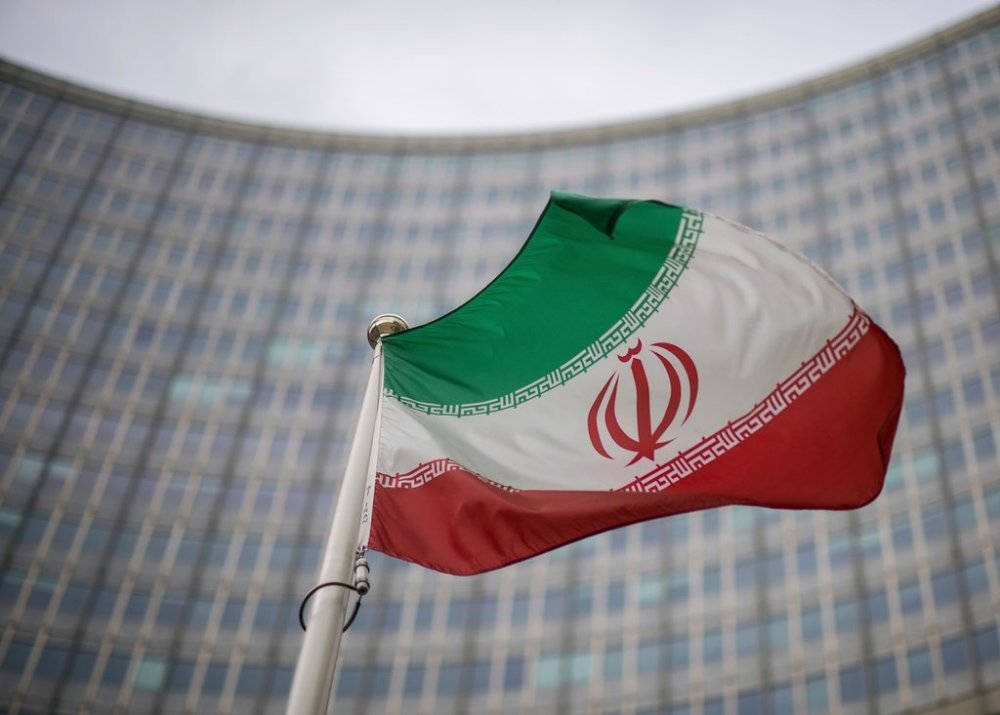Iran rejects UN atomic agency’s resolution and threatens more reprisal actions
Advertisement
Read this article for free:
or
Already have an account? Log in here »
To continue reading, please subscribe:
Monthly Digital Subscription
$0 for the first 4 weeks*
- Enjoy unlimited reading on winnipegfreepress.com
- Read the E-Edition, our digital replica newspaper
- Access News Break, our award-winning app
- Play interactive puzzles
*No charge for 4 weeks then price increases to the regular rate of $19.00 plus GST every four weeks. Offer available to new and qualified returning subscribers only. Cancel any time.
Monthly Digital Subscription
$4.75/week*
- Enjoy unlimited reading on winnipegfreepress.com
- Read the E-Edition, our digital replica newspaper
- Access News Break, our award-winning app
- Play interactive puzzles
*Billed as $19 plus GST every four weeks. Cancel any time.
To continue reading, please subscribe:
Add Free Press access to your Brandon Sun subscription for only an additional
$1 for the first 4 weeks*
*Your next subscription payment will increase by $1.00 and you will be charged $16.99 plus GST for four weeks. After four weeks, your payment will increase to $23.99 plus GST every four weeks.
Read unlimited articles for free today:
or
Already have an account? Log in here »
TEHRAN, Iran (AP) — Iran’s foreign ministry called a resolution by the U.N. atomic watchdog’s board of governors “anti-Iranian” and threatened unspecified retaliatory actions, state media reported on Friday.
The International Atomic Energy Agency on Thursday demanded that Iran fully cooperate with the agency and provide “precise information” about its stockpile of near weapons-grade uranium, as well as grant its inspectors access to Iranian nuclear sites.
A report by the official IRNA news agency on Friday quoted foreign ministry spokesman Esmail Baghaei as saying that Iran informed the Vienna-based IAEA in a letter that it in addition to ending an agreement forged over the summer in Cairo, the Iranian government could take “other actions” in response to Thursday’s resolution.

Iran suspended all cooperation with the IAEA after the war with Israel. IAEA Director-Genral Rafael Mariano Grossi then reached an agreement with Iranian Foreign Minister Abbas Araghchi in Cairo in early September to resume inspections.
Baghaei didn’t immediately elaborate on what further actions Iran would take, but further uranium enrichment by the country is a possibility. He accused the IAEA of amplifying “grudges” held against Iran by the United States, the United Kingdom, France and Germany.
The minister complained that the resolution didn’t mention the reason that Iran halted inspections was because of the strikes by Israel and the U.S. against Iran’s nuclear facilities in June.
The IAEA’s resolution sets the stage for a likely further escalation of tensions between the U.N. nuclear agency and Iran, which has reacted strongly to similar moves by the watchdog in the past.
After a 12-day air war in June with Israel, Iran suspended all cooperation with the IAEA. Strikes on Iran killed nearly 1,100 in Iran, including military commanders and nuclear scientists.
After the deal to resume inspections in September, the U.N. reimposed crushing sanctions on Iran later that month through the so-called snapback mechanism contained in the 2015 Iran nuclear deal, drawing an angry response from Tehran and leading it to halt implementation of the Cairo agreement.

